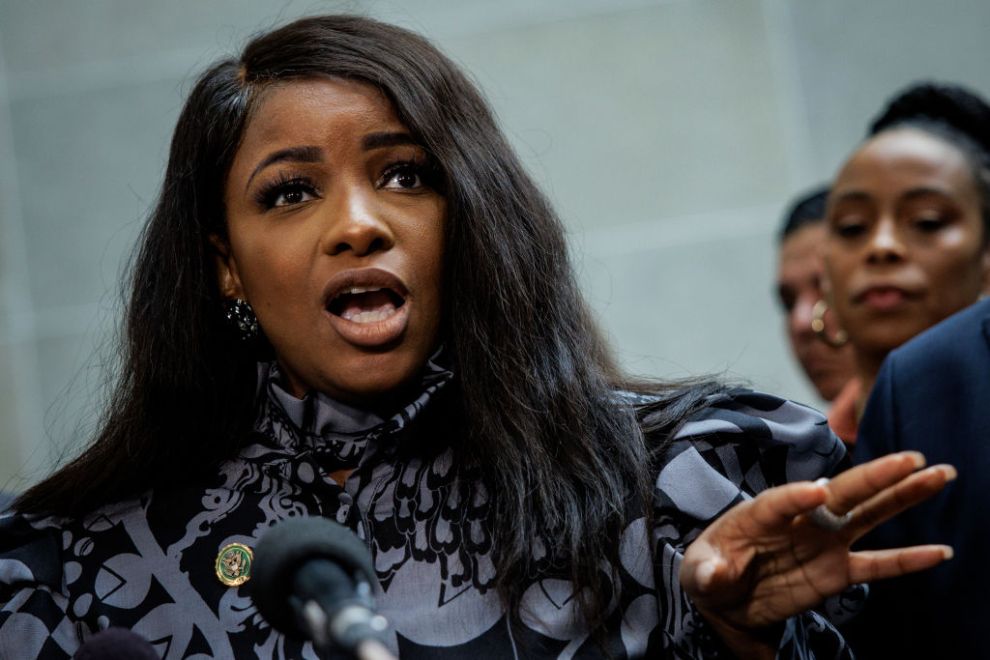U.S. Rep. Jasmine Crockett on Monday responded forcefully to critical comments made by ESPN and radio personality Stephen A. Smith. He had questioned whether her outspoken opposition to former President Donald Trump serves her constituents. Crockett said she was not surprised by the remarks but insisted her critics misunderstand public service.
“Stephen A. Smith taking shots at Jasmine Crockett ain’t just messy, it’s weak,” read one of her posts, reposting a comment by rapper Willie D. Crockett added a prayer-hands emoji.
Smith, during a recent episode of his Sirius XM show Straight Shooter, suggested that Crockett’s rhetorical style does not “help your district.” He said, “I’m just going to go off about Trump, cuss him out every chance I get… and that’s my day’s work.” Smith asked whether she might do better by “working with this man” instead of obstructing his agenda.
Crockett pushed back, not by naming Smith directly, but by framing this as part of a broader pattern of policing the tone of outspoken Black women in politics. She has not responded with a direct quote aimed at Smith, but allowed her reposts and social media signals to speak.
“It’s no longer a difference of opinion. Stephen A. Smith’s actions are intentional,” wrote activist Tamika Mallory in a post that Crockett reshared. Mallory challenged followers: “At what point will you lead the charge to TURN HIM OFF?!”
Reactions and Context
In the wake of Smith’s remarks and Crockett’s amplification of criticism toward him, others in media have weighed in. Journalist Tiffany Cross called his comments “absolute pure self-hating… ignorance.” She argued that Black men should drop their support for Smith’s platforms.
Willie D defended Crockett strongly, saying: “She’s the kind of woman who walks into rooms full of snakes and makes the snakes flinch.” He framed Smith’s attack as betrayal rather than critique.
Crockett, a Democrat from Texas, has grown known for unapologetic critiques of Trump and bold rhetorical flourishes. She has also been criticized at times for remarks on topics from law enforcement to ableism, though she defends each time as being about policy, not insult.

